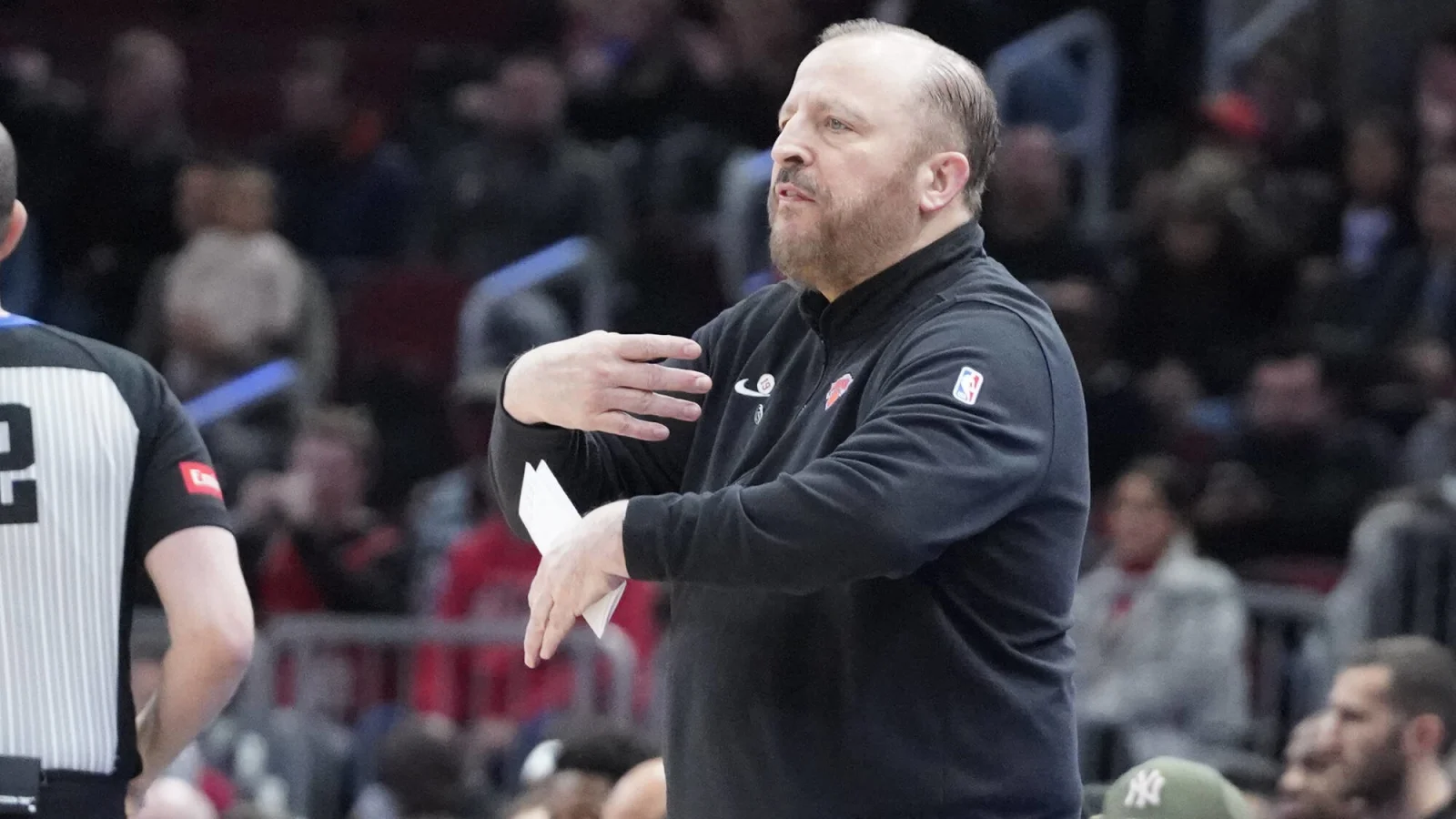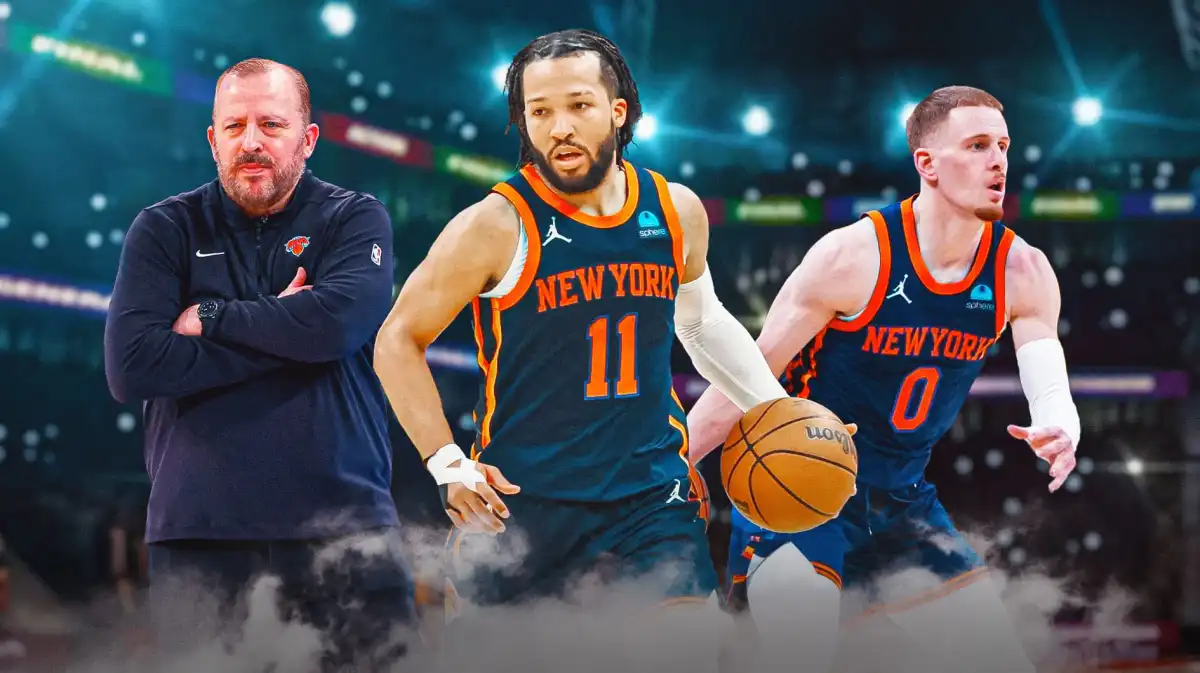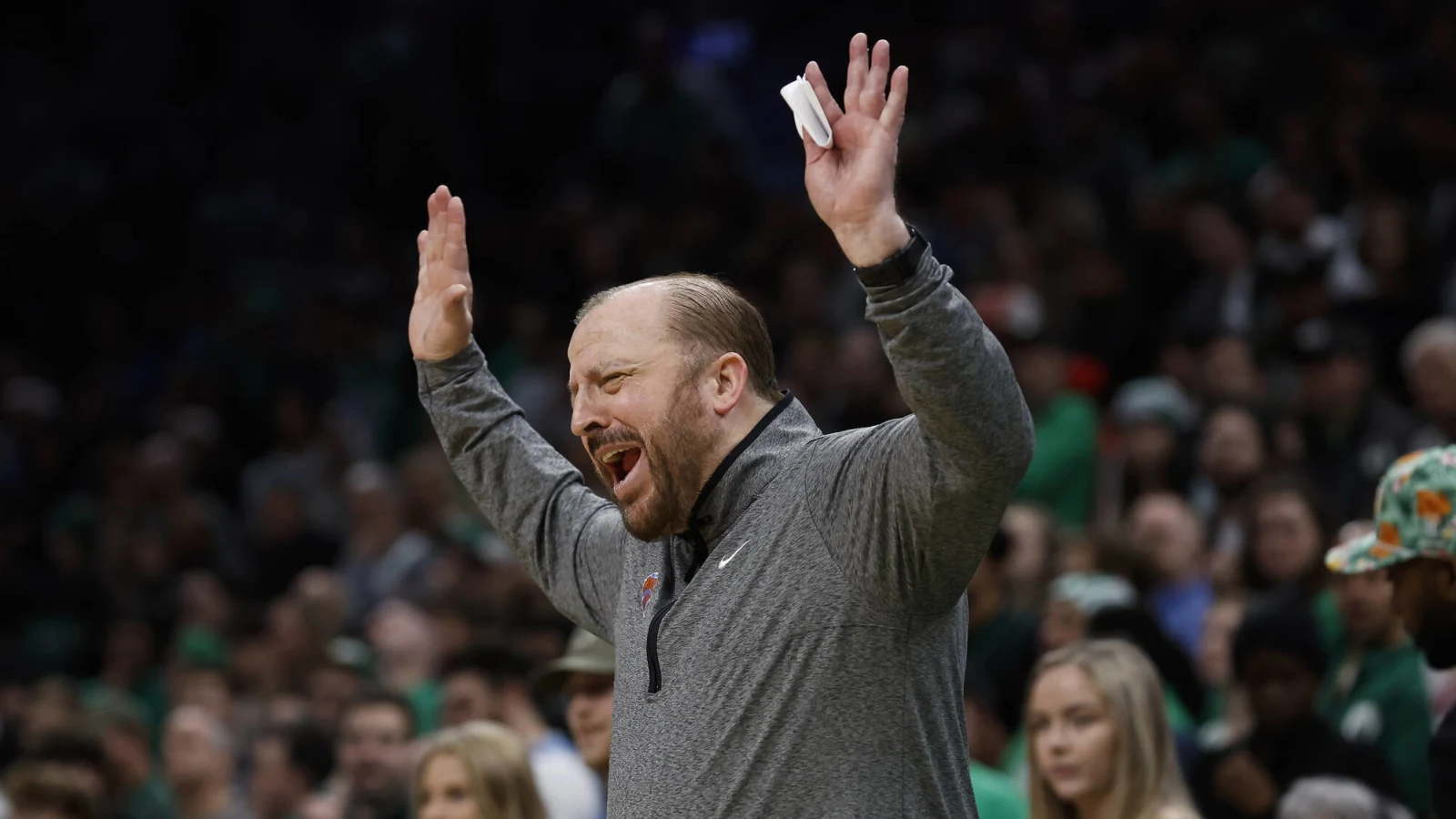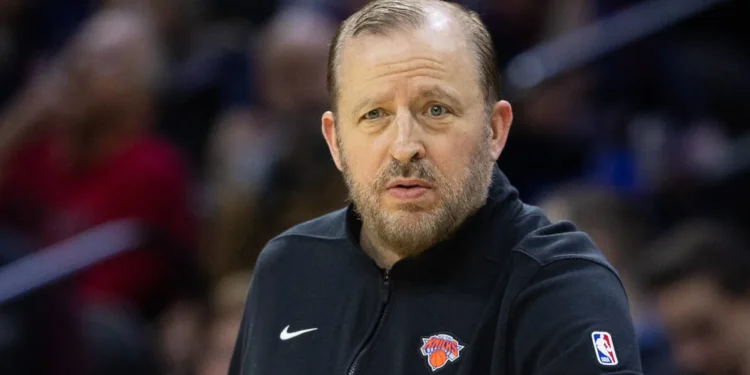As the dust settles on the Eastern Conference Semifinals, the New York Knicks find themselves out of the NBA playoffs, following a devastating Game 7 loss to the Indiana Pacers. In the aftermath, head coach Tom Thibodeau has become the focal point of criticism, bearing the brunt of blame for the team’s exit.
Known for his intense coaching style and rigorous demands on players, Thibodeau’s strategies, which once propelled the New York Knicks through earlier rounds, seemed to have faltered when it mattered most.

New York Knicks: Strategic Decisions Backfire
Throughout the season, Thibodeau’s approach involved heavy reliance on key players, a strategy manifesting in short rotations and extended minutes for his main squad. This method appeared effective initially but culminated in unforeseen repercussions during the crucial Game 7.
Critics argue that such a demanding schedule contributed to physical wear and tear, which became painfully apparent when Jalen Brunson, a standout performer, suffered a fractured hand mid-game, significantly dampening the team’s spirit and performance.

Adding to the New York Knicks’ woes, OG Anunoby, who had just returned from a hamstring injury, saw limited playtime, further straining the team’s on-court capabilities. The absence of Julius Randle, sidelined since January with a shoulder injury, only exacerbated the situation, leaving the team vulnerable at a pivotal moment.
Voices of Dissent
The mounting injuries have sparked a chorus of disapproval among fans and commentators alike, who suggest that a reassessment of Thibodeau’s management style is overdue. “Thibs running the 48 mins per game gimmick for the past decade thinking it’s gonna work,” one critic pointed out, highlighting a perceived stubbornness in adapting his strategies to the realities of modern NBA play.
Others were less kind, with comments like “Thibs be killing his players for nothing,” and harsh comparisons to Thibodeau’s previous tenure with the Chicago Bulls, where similar issues occurred with star player Derrick Rose.

Looking to the Future
Despite the current turmoil, the New York Knicks possess a robust roster that promises competitiveness in the NBA landscape. The task ahead for Thibodeau and the New York Knicks management is clear: find a balance that preserves player health while maintaining the aggressive edge that defines their play.
As the team regroups for the next season, reassessing player rotations and possibly easing the physical demands could be key strategies in preventing future injuries and ensuring that the team remains a formidable contender in the high stakes environment of the NBA playoffs.
While Thibodeau’s role in the New York Knicks’ narrative is undeniable, the future also holds an opportunity for redemption. Adjustments in coaching strategy and a renewed focus on player welfare could pave the way for a stronger, more resilient New York Knicks team. As the saying goes, in the face of defeat, the true test is how one rebounds and rises, ready to face the challenges anew.










